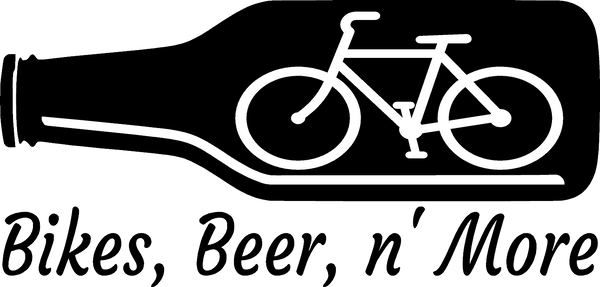(1.4) Belgium Brasseries and Cafés
Community Engagement and Civic Identity
Belgian beer cafés have long been central to fostering dialogue and building connections among people from various social backgrounds. These establishments provided a welcoming atmosphere where individuals could exchange ideas, create networks, and develop a shared sense of identity. During the 19th and early 20th centuries, Belgium underwent significant industrial and societal changes. Amid these transformations, beer cafés became crucial spaces for workers who endured harsh conditions in factories. These informal settings offered them a sanctuary to share their experiences and discuss potential solutions to common challenges.
Unlike workplaces or religious institutions, beer cafés served as neutral grounds where individuals could engage openly, free from the restrictions of hierarchy or tradition. This sense of neutrality made these spaces critical for fostering social cohesion and dialogue among diverse groups, shaping them into vibrant hubs of community engagement.
Catalysts for Labor Movements
As informal meeting places, beer cafés played an important role in the labor movements that emerged during Belgium’s industrialization. Workers frequently gathered in these spaces to discuss labor rights, share grievances, and organize efforts to improve their working conditions. Though modest in scale, these discussions often sparked broader movements advocating for better wages, shorter working hours, and safer workplaces.
The role of beer cafés in labor organizing extended beyond casual conversations. These establishments became places where workers cultivated a collective consciousness about their rights and responsibilities. While not serving as formal headquarters for political activity, the conversations held within their walls contributed significantly to shaping Belgium’s progressive labor reforms and the rise of political parties representing the working class.
Platforms for Political and Social Reform
The accessibility and conviviality of beer cafés made them fertile ground for political discourse and reform efforts. In a country transitioning from monarchy to democracy, these establishments became centers for the exchange of ideas about equality, suffrage, and social justice. Grassroots discussions often took root in beer cafés, and many of these conversations influenced significant milestones in Belgium’s political evolution.
One notable figure who exemplified the intellectual and cultural significance of these spaces was Herman Teirlinck, a celebrated writer, playwright, and cultural advocate. During the early 20th century, Teirlinck frequently convened at the renowned 3 Fonteinen restaurant in Beersel, which served as a favored venue for intellectual gatherings. Renowned not only for its exceptional lambic and gueuze beers but also for its historical atmosphere, 3 Fonteinen became a hub for Teirlinck and his literary and artistic circle, known as De Mijol Club (“The Diggers”). In 1912, he founded the literary club De Mijol Club (also M.C, Magna Carta, or Marie Jolles Club).
De Mijol comprised a group of like-minded artists, writers, and intellectuals who engaged in discussions about culture, literature, and social change. Among its prominent members were Fernand Victor Toussaint van Boelaere [nl], August Vermeylen, Alfred Hegenscheidt [nl], and Ernest Claes were members. Together, the drank lambic, played faro, and fostered a spirit of creativity and intellectual exchange with the 3 Fonteinen providing an ideal setting for their vibrant deliberations.
Herman Teirlinck’s status as a cultural luminary is underscored by his significant achievements. He authored acclaimed works such as Het Ivoren Aapje (The Ivory Monkey) and Maria Speermalie, which highlighted his literary prowess. Additionally, he revolutionized Flemish theater by introducing modern elements that reflected Belgian cultural and social identity. His contribution to education was equally groundbreaking, as he founded the Studio Herman Teirlinck in Antwerp, a drama school that became a cornerstone of theatrical training in Belgium. His achievements solidified his place as a towering figure in Belgium’s cultural history.
Cultural Identity and National Pride
Belgium’s beer tradition is a cornerstone of its cultural identity, and beer cafés became emblematic of this heritage. By celebrating the craft and diversity of Belgian brewing, these establishments reinforced national pride and helped distinguish Belgium’s cultural identity from neighboring nations.
During periods of political and cultural tension, beer cafés also served as neutral spaces where linguistic and regional divides could be bridged. In a country marked by divisions between French-speaking Walloons and Dutch-speaking Flemish, beer cafés fostered a sense of unity, allowing people to come together in a shared appreciation of Belgium’s rich brewing tradition.
Modern Social Dialogues
In contemporary times, the role of beer cafés has evolved to reflect changing social values and concerns. Public health campaigns and regulations aimed at promoting responsible alcohol consumption have reshaped the way these spaces are perceived and operated. While beer cafés remain central to Belgian culture, they are now also part of a broader conversation about health, moderation, and well-being.
Despite these changes, beer cafés continue to honor their historical significance. They remain vital cultural institutions, preserving traditions while adapting to modern sensibilities. Their legacy as places of connection and dialogue ensures their relevance in Belgian society, even as the world around them changes. In the end, Belgium’s beer cafés are more than venues for enjoying a drink—they are enduring symbols of dialogue, solidarity, and cultural heritage that have profoundly influenced the country’s social and political landscape.
